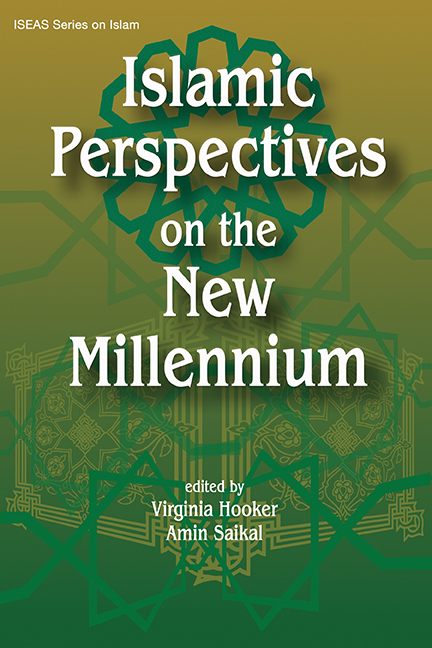1 - Islamic Perspectives on the New Millennium
Published online by Cambridge University Press: 21 October 2015
Summary
The suicide bombings in the United States of America on 11 September 2001, executed by terrorists claiming they acted in the name of Islam, set in train events whose repercussions will influence world politics for the foreseeable future. Although the perpetrators were denounced by Muslim leaders around the world as criminals whose acts were not condoned by Islam, many non-Muslims nevertheless believed that somehow Islam was to blame for the September 11 tragedy. The Islamic terrorist group known as Al-Qaeda claimed responsibility for the bombings and was targeted by Western leaders for retribution, but care was taken to emphasize that the punitive action would be directed against Al-Qaeda and its allies, not against Islam and Muslims in general. However, when the United States and its allies bombed Taliban forces in Afghanistan (2001) and then proceeded against Saddam Hussein without the sanction of the United Nations Security Council (2003), increasing numbers of ordinary Muslims became suspicious about the motives of the administration of President George W. Bush. Heightened surveillance of Muslims in many Western countries, more stringent immigration controls, tight security in public venues and centres of mass travel, and alarmist reports in many media outlets produced a sense of fear among ordinary people, both Muslims and non-Muslims. The early years of the twenty-first century have therefore been characterized by widespread anxiety and fear of violence, state intrusion into personal lives (in the name of public safety) and perceived discrimination against individuals on the basis of their place of origin or religion.
The climate of fear which has grown and been fostered by the media, wherever it operates, is in sad contrast to the efforts of many intellectuals in the last decade of the twentieth century to find common ground between people of all faiths based on the universality of mankind. Possibly provoked by Samuel P. Huntington's controversial claim that “universal civilization” was the product of Western thought, there have been many responses from Muslim intellectuals who argued that it was Islamic civilization which became the first truly universal civilization. These intellectuals also promoted the concept of civilizational dialogue, recognizing that there are many religions and cultures and seeking a system of global ethics based on shared spiritual, moral, and ethical values.
- Type
- Chapter
- Information
- Islamic Perspectives on the New Millennium , pp. 1 - 16Publisher: ISEAS–Yusof Ishak InstitutePrint publication year: 2004



